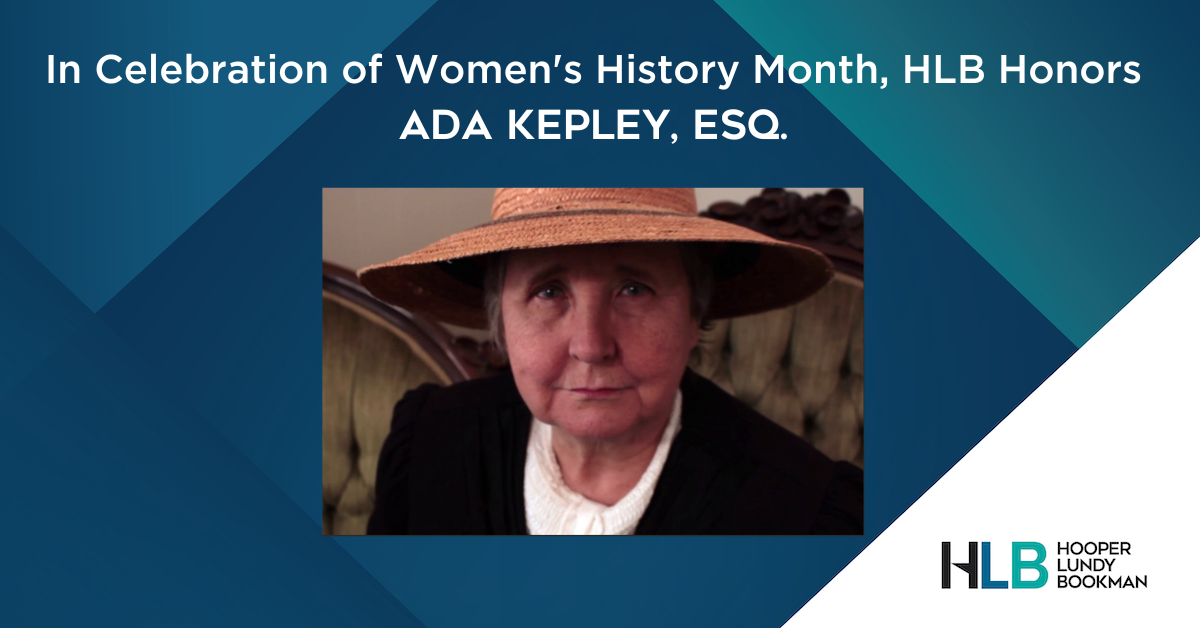In 1870, Ada Kepley became the first American woman to graduate from law school, but she couldn’t practice it because Illinois law forbade her from doing so. Kepley overcame this setback by advocating for social change for women. Kepley became an important activist for women’s suffrage and the temperance movement, rallying others to both causes. In 1867, Ada married Henry B. Kepley, who had his own law practice in Effingham, Illinois. At his urging, she attended the Old University of Chicago’s law department (now Northwestern University School of Law), where she became the first woman to graduate from law school in the United States. In response to Illinois law denying her admission to the state bar, her husband drafted a bill banning sex discrimination in professional occupations; it became state law in 1872. Kepley finally became licensed and admitted to the bar in 1881 after the law was overturned, but by then, she was absorbed in her activist endeavors. She advocated against alcohol use, utilizing her skills and talents to rise to a position of national prominence in the temperance movement. Kepley’s association with nationally known women’s movement icons Frances Willard (of the Woman’s Christian Temperance Union or WCTU) and Susan B. Anthony (co-founder of the National Woman Suffrage Association) gained Kepley national recognition in these organizations. Upon the death of her husband Henry in 1906, the bereaved Ada moved to the Kepley farm between Watson and Mason, Illinois. She wrote her autobiography, entitled, A Farm Philosopher, A Love Story (since edited and re-published), which she published in 1912. In her book she describes a unique situation, in which Judge Thomas Casey once submitted a case to her for decision. According to her autobiography, Judge Casey asked Kepley to decide the case for him and he ruled in accordance with Kepley’s recommendation in a family law dispute relating to placement of a child following a divorce. “I am glad I did get to try my hand, the first woman, I think, who decided a case for the Circuit Bench, in the United States, or in the whole world for that matter,” Kepley wrote of the experience. Kepley trailblazed the way for many future women lawyers as the first woman to graduate from law school and through serving her community as a champion of women suffrage and temperance. We celebrate Ada Kepley this Women’s History Month, as a maverick who continued to effect social change before finally celebrated and championed as lawyers.
